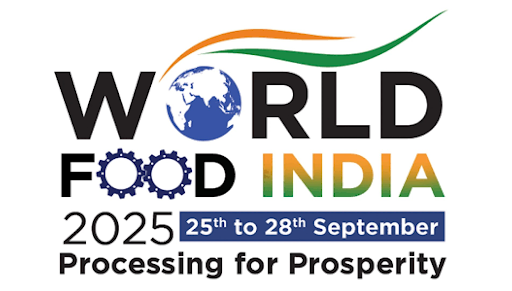





Disclaimer: Copyright infringement not intended.
Context
PMFB
Objectives
The PM Fasal Bima Yojana operates under the ‘One Nation, One Crop, One Premium’ motto and aims to achieve the following goals:
Insurance Coverage under the PMFBY Scheme
Under this scheme, the insurance cover is limited to specific crops and agricultural risks related to the crop yield. The list of notified crops includes food crops (i.e., cereals, millets, and pulses), oilseeds, annual commercial crops, and annual horticultural crops.
It also covers all stages of the crop production cycle. The inclusions and exclusions of insurance cover provided are as follows:
The insurance claim size is based on the proportion of shortfall from the threshold yield multiplied by the sum insured. The sum insured is calculated over the scale of finance provided to farmers and the threshold crop yield is calculated based on seven-year data and indemnity levels.
Beneficiaries of the PMFBY Scheme
According to the government, under this scheme, all farmers (including sharecroppers and tenant farmers) growing notified crops in the notified areas are eligible for coverage, if they have insurable interest for the insured crops.
The eligible farmers can be broadly classified into two categories:
|
Categories |
Description |
|
Loanee Farmers |
|
|
Non-Loanee Farmers |
|
Evaluation and Recommendations
The Standing Committee on Agriculture (Chair: Mr. P. C. Gaddigoudar) submitted its report on ‘Pradhan Mantri Fasal Bima Yojana – An Evaluation’ in 2021.
Key observations and recommendations of the Committee include:
Participation of states: The Committee noted that some recent revisions in the scheme guidelines may lead state governments to withdraw from it. The Committee has recommended revising amendments which:
The Committee further noted that several states such as Bihar and West Bengal have withdrawn from the scheme, while Punjab never implemented it. It attributed this to financial constraints and low claim ratios during the normal seasons. It recommended enacting measures to increase participation by states.
Coverage: The Committee noted that farmers who have taken loans may opt out of the scheme by submitting a declaration form. However, due to lack of awareness, several farmers do not submit the requisite form and face a mandatory deduction of premium from their bank accounts. It recommended amending this provision to require such farmers (who have taken a loan) and want to avail the scheme to opt in separately.
Delays in the settlement: The Committee recognised delays in settlement of insurance claims as one of the biggest challenges in implementation of the scheme. It noted that the delays may be due to factors such as:
It recommended addressing these issues using technology and the coordination of all institutional mechanisms. It also recommended implementing a timeline for settlement of claims by insurance companies. In cases where delays are caused by failure of the state governments to pay subsidy, it suggested returning the premium with interest to farmers within a fixed time frame.
Insurance companies: The Committee observed that insurance companies are required to have a functioning office in each tehsil. However, they are non-existent in several districts. It noted that these offices are crucial for farmers to mitigate the problems faced in availing the scheme benefits and suggested uploading the contact details of their officials on the insurance portal.
Penalties for companies: The Committee noted that delays in taking action against defaulting insurance companies have been observed. It attributed this to procedural complications and recommended effectively penalising defaulters in a time-bound manner.
Grievance redressal: The Committee noted that only 15 states and union territories have notified Grievance Redressal Committees at both the state and district level, as mandated under the scheme. It recommended ensuring the formulation of these Committees in all other states. It also suggested the Department of Agriculture and Farmers’ Welfare to nominate local public representatives (including Members of Parliament) in the district-level Committees to ensure accountability. It noted that the Department of Agriculture and Farmers’ Welfare does not have data on grievances received and resolved and recommended recording such data. It also suggested establishing a toll-free helpline number to address queries of farmers.
Technological interventions: The Committee noted that yield-related disputes and delayed transmission of yield data are a major reason for delays in settlement of claims. It noted that this data is provided by state governments based on crop cutting experiments which are highly time consuming and labour intensive. To address this, it recommended the adoption of smart sampling techniques by all states using technological interventions such as satellite data or use of drones. Further, the Committee recommended regular monitoring of utilisation of 3% of administrative expenses. These funds are earmarked for developing infrastructure and technology.
Corporate Social Responsibility (CSR): The Committee noted that the scheme does not mandate insurance companies to spend the share of their profits going towards CSR in the districts from where profits are earned. The Committee recommended adding a provision to enable this.
Final Thought
The scheme has been able to provide financial assistance to the most vulnerable farmers, as around 85% of the farmers enrolled with the scheme are small and marginal farmers.
The recent announcement by Finance Minister of India Smt. Nirmala Sitharaman during her 2022-23 budget speech on the use of drones for crop insurance will further strengthen the integration of technology for smooth implementation of the scheme on the ground.
The scheme will be launching a doorstep distribution drive to deliver crop insurance policies to the farmers ‘Meri Policy Mere Hath’ in all implementing States. The campaign aims to ensure all farmers are well aware and equipped with all information on their policies, land records, the process of claim and grievance redressal under PMFBY.




© 2025 iasgyan. All right reserved